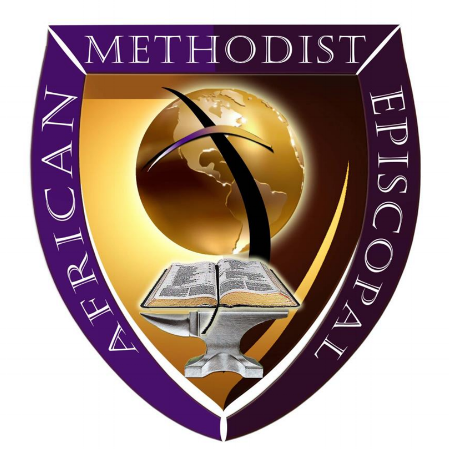
3rd District of the African Methodist Episcopal Church
We Are Better Together!
Rt. Rev. Errenous E. McCloud – Presiding Bishop
Patricia Russell-McCloud, Esq – District Supervisor
515 Executive Campus Dr., Suite 120, Westerville, Ohio 43082. 614.227.5812
Serving: Ohio - Pennsylvania - West Virginia
Different kind of lifestyle
Welcome to the 3rd District of the AME Church
The African Methodist Episcopal (AME) Church, founded in 1816 by Richard Allen in Philadelphia, is a historic Methodist denomination with a strong emphasis on social justice and equality. Rooted in Wesleyan theology, the church places a significant focus on personal and social holiness, aiming to empower the African American community.
Organized into Episcopal Districts overseen by bishops, the AME Church actively engages in social activism, advocating for civil rights, education, and economic empowerment. The Third Episcopal District, a part of the larger AME Church structure, holds a distinct presence. Encompassing specific geographic regions, the Third District is led by Bishop [Bishop’s Name], who provides spiritual guidance and oversight. Within this district, various local initiatives, community outreach programs, and notable churches contribute to the broader mission of the AME Church. These efforts, guided by a commitment to social justice, continue to shape the rich legacy of the AME Church and its impact on African American communities.
About Our Bishop
Rt. Rev. Errenous E. McCloud
The Right Reverend Errenous E. McCloud has served as a prominent spiritual leader within the Third Episcopal District of the AME Church. With a commitment to the principles of the AME Church and its mission of social justice, Bishop McCloud has provided spiritual guidance and oversight to the congregations within the district. His leadership has likely involved fostering a sense of community, promoting worship and fellowship, and actively engaging in initiatives that address the needs of the local community. Bishop McCloud’s tenure in the Third District reflects a dedication to the rich history and heritage of the AME Church, contributing to the spiritual growth and well-being of the congregants under his guidance.

Watch The Live 360 Tour
Quality Life for You and Your Family
Church Worship, Services, Amenities, Programs and events
The decision to join a church is deeply personal and can be influenced by various factors. Here are some common reasons that individuals often consider when contemplating joining a church:
Spiritual Growth: Many people seek a church community to deepen their spiritual understanding and grow in their faith through regular worship, prayer, and study of religious teachings.
Community and Fellowship: Churches provide a sense of belonging and community. Joining a church offers the opportunity to build supportive relationships, make friends, and share life experiences with like-minded individuals.
Moral and Ethical Guidance: Churches often provide a moral and ethical framework for individuals, helping them navigate life’s challenges and make decisions based on shared values and principles.
Worship Experience: The communal worship experience, including music, rituals, and teachings, can be a significant draw for individuals seeking a meaningful and inspiring connection with the divine.
Service and Outreach: Many churches are actively involved in community service and outreach programs. Joining a church allows individuals to participate in initiatives aimed at helping others and making a positive impact on society.
Family and Social Support: Churches can be a source of support for families, offering guidance on family matters, parenting, and marriage. They also provide a social network that extends beyond religious activities.
Sense of Purpose: Joining a church can provide a sense of purpose and direction in life. Many people find fulfillment in contributing to the well-being of the community and engaging in activities that align with their values.
Healing and Comfort: Churches often serve as places of solace during difficult times. The supportive community and spiritual resources can offer comfort and aid in the healing process.
Learning and Education: Churches frequently offer educational opportunities, such as Bible studies and classes, allowing individuals to deepen their knowledge of religious texts and theology.
Opportunities for Leadership: Many churches provide opportunities for individuals to take on leadership roles within the congregation, fostering personal growth and a sense of responsibility.
It’s important to note that individual preferences, beliefs, and experiences vary, so the reasons for joining a church can differ from person to person. When considering joining a specific church, individuals should explore the community, its values, and how well it aligns with their spiritual and personal needs.
Rich History and Heritage:
The AME Church has a significant historical background, founded in 1816 by Richard Allen. Joining offers a connection to a heritage rooted in the fight against racial injustice and the empowerment of the African American community.
Social Justice and Activism:
The AME Church has a long-standing commitment to social justice, civil rights, and community activism. Joining provides an opportunity to be part of a community actively engaged in addressing social issues and advocating for equality.
Vibrant Worship and Community:
Many people are drawn to the dynamic and expressive worship style of the AME Church, featuring lively music, impactful preaching, and a strong sense of community. Joining can provide a spiritually enriching and supportive environment.
Emphasis on Education:
The AME Church historically places importance on education as a means of empowerment. Joining may involve access to educational initiatives and programs within the church community.
Global Connection:
As a part of a larger denomination, joining the AME Church provides a sense of global connection and belonging. The church is organized into Episcopal Districts, creating a broader network beyond local congregations.
Leadership and Guidance:
The AME Church is led by Bishops who provide spiritual guidance and oversight. Joining offers an opportunity to be part of a community led by dedicated spiritual leaders.
Community Outreach and Service:
Many AME congregations are actively involved in community outreach and service projects. Joining allows individuals to contribute to meaningful initiatives aimed at improving the lives of others.

The importance of African American voting in the United States cannot be overstated, as it represents a crucial mechanism for political empowerment, social justice, and the protection of civil rights. Throughout American history, African Americans have faced systemic barriers to voting, including discriminatory practices such as literacy tests, poll taxes, and intimidation. The right to vote has been hard-fought and won through the struggles of the Civil Rights Movement, epitomized by the passage of the Voting Rights Act of 1965. Today, African American voting remains a powerful tool for combating racial inequality and ensuring representation at all levels of government. By exercising their right to vote, African Americans contribute to shaping policies that address issues such as criminal justice reform, economic equity, healthcare access, and education, fostering a more inclusive and representative democracy.
Quality Life for You and Your Family
Fellowship Awaits You

African American voter turnout also plays a pivotal role in influencing electoral outcomes, thereby shaping the nation’s political landscape. When African Americans actively participate in the electoral process, they have the ability to amplify their voices, advocate for policies that address systemic racism, and elect representatives who prioritize their communities’ concerns. The impact of African American voting extends beyond individual races, influencing the broader political agenda and promoting a more equitable and just society. Recognizing the importance of their vote, African Americans continue to engage in civic participation, contributing to the ongoing struggle for equality and social justice in the United States.
Serving the Lord wherever you may live.
The Location
The Third District covers the states of Ohio, Pennylvania and West Virginia. It serves over 32,000 perishiners within over 300 sacred structures. Many churches are over 100 years old and have faithfully served the surrounding communities. Please visit an AME church near you!

Find the Best Version of You
Lorem ipsum dolor sit amet, consectet adipiscing elit,sed do eiusm por incididunt ut labore et dolore magna aliqua. Ut enim ad minim veniam, quis nostrud exercitation ullamco laboris nisi ut aliquip ex ea sint occae.
Share and Care
Don’t miss your last chance to share your experiences and empower others.